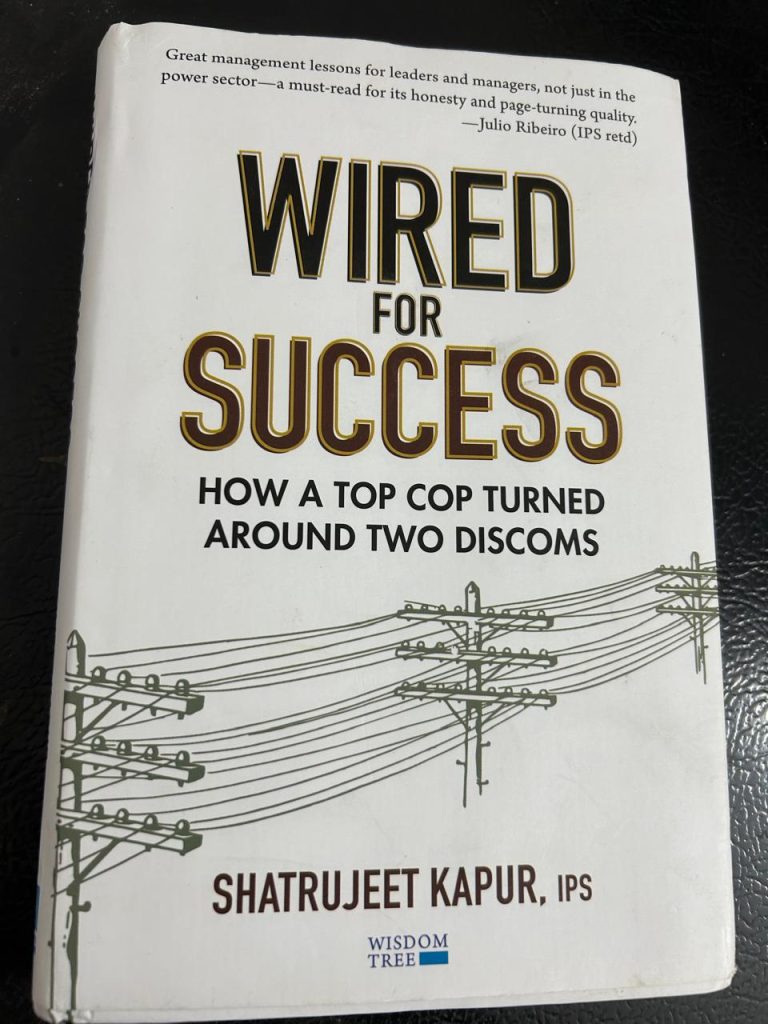Shatrujeet Kapur of the 1990 batch officer of the Indian Police Service, has been in the forefront in key positions. He has served in the UN Peacekeeping Mission in Kosova, and also in the Central Bureau of Investigation and has held several prominent positions in Haryana. In fact, he currently heads the Haryana police, as its Director General of Police.This book authored by him, focuses on his role as the chief of the two power distribution companies in the state of Haryana. During his tenure as CMD, from 2016 to 2021, he came up with several significant reforms. When he took over as CMD towards the end of 2016, the combined accumulated losses of the two companies were over INR 29,000 crores. By the time he left the Discoms towards the end of 2020-21, the financial gains stood at INR 15,966 crores!…A Book Review by Humra Quraishi

Mind you, there were not just financial gains but much more, in terms of better access to electricity, especially in rural areas, upgradation of the power distribution, continuity and enhanced reliability of the power supply…
And if one were ask how did he manage to bring about these significant changes, it gets significant to point out that he was determined to completely and completely weed out and banish corruption. He took every possible measure, which he details in the book, to halt corruption. Together with that he also details, “We worked out fresh HR practices, automated the transfers and placements, incentivised initiative and decentralized power to usher in a sea change in not just the performance but also the culture of the two Discoms. Had this not been done, the changes and improvements would have been piecemeal and unsustainable. My vision was clear: for change to be effective, it had to be deep and sustainable.”
Perhaps, these words of the veteran police officer, Julio Ribeiro, for Shatrujeet Kapur and his book
seem just very apt: “Great management lessons for leaders and managers, not just in the power sector – a must read for its honesty and page-turning quality.”












